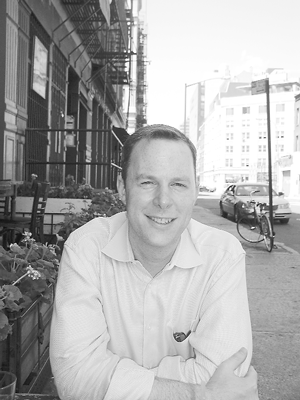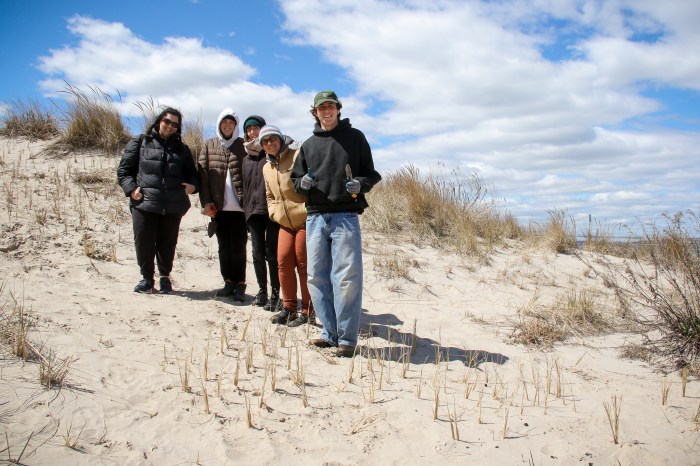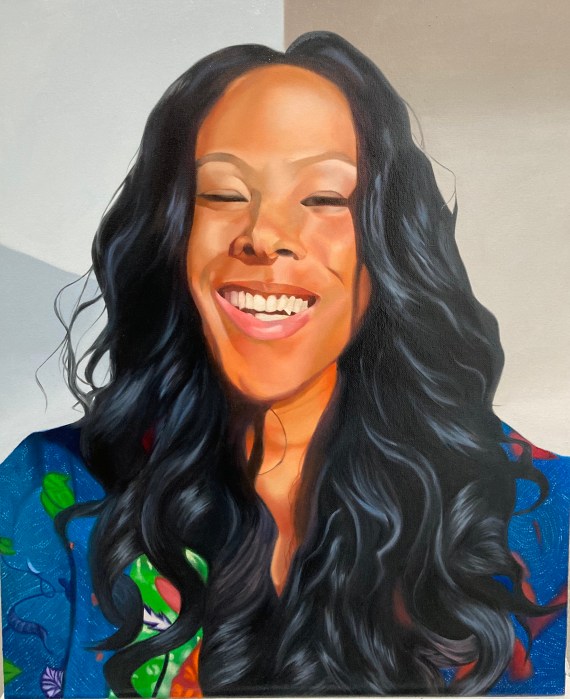Patrick Murphy, a gay Republican, seeks Moskowitz’s Council seat
Patrick Murphy, a candidate for the East Side City Council seat being vacated by Manhattan borough president hopeful Eva Moskowitz, disagrees with Mayor Michael Bloomberg’s decision in February appealing a State Supreme Court ruling ordering the city clerk to issue same-sex marriage licenses.
A gay man and a member of the Citywide Dignity Coalition, Murphy was also disappointed by the mayor’s statement that he would not implement—and would instead challenge the legality of—the Dignity for All Students Act, a measure passed by the City Council last year over Bloomberg’s veto that would implement anti-harassment and bullying provisions and reporting in the public schools, with protections specifically covering gay, lesbian and transgendered students.
Asked about Bloomberg’s ongoing legal challenge to the Equal Benefits Law, that would guarantee the gay employees of city contractors partner benefits equal to that offered to workers’ spouses, also enacted last year over his veto by the Council, Murphy insisted the mayor must find a way to deliver the benefits he is fighting in court.
“He’s got to find a solution,” Murphy said.
Another gay Democrat who can expand the community’s presence at City Hall?
Not quite.
Murphy is a Republican. In fact, he serves on the national board of directors of the Log Cabin Republicans, the gay G.O.P. group, and is his party’s nominee in the November election.
Murphy, who is 38, explained that his allegiance to the Republican Party dates back to his high school days, in Providence, Rhode Island, when he interned in the office of Sen. John Chafee, who held the seat now occupied by his son, Lincoln Chafee. Both father and son earned reputations as independent-minded, moderate Republicans willing to buck more extremist conservative elements in the G.O.P.
“John Chafee was a unique individual, an avid environmentalist,” Murphy said during a recent lunch interview. “He lost re-election as governor for not promising no state income tax. When he was the secretary of the Navy, he shut a Rhode Island naval base. He then won his Senate seat in 1976.”
Murphy continued working for Chafee while in college at Holy Cross, in Worcester, Massachusetts, doing summer stints in the senator’s Providence and Washington offices.
Yet in the decade or so after moving to New York in 1990, Murphy remained relatively aloof from politics, while he pursued a career in marketing, most recently as a vice president at Digitas, a direct marketing services company.
That changed in the weeks after September 11, but that timing was merely coincidental. In the fall of 2001, Murphy started a ten-month program, run by the non-profit Coro Foundation called Leadership NY, which aims to train mid-career New Yorkers to step up to greater roles in civic life. Though Murphy had decided on the program prior to the terrorist attack, the training had particular resonance that autumn. Murphy focused his work on housing and infrastructure issues.
After completing the Coro program, Murphy was drawn to the Log Cabin Republicans by the confluence of national politics and changes within that organization.
“With a looming federal marriage amendment, progressive Republicans downstate began to think that it was time to make a statement to the national party,” he explained.
“I soon found my way to the national board of Log Cabin. I was attracted by Patrick to make a difference in the party,” Murphy continued, referring to Patrick Guierrero, who assumed leadership of the national group in late 2002.
Murphy helped steer the group’s expenditure of more than a million dollars in swing states last year to help defeat in the Senate the federal constitutional amendment that would have limited marriage to unions of one man and one woman. The television ad the group produced ran a clip of Vice Pres. Dick Cheney’s comments during his 2000 debate with Democratic Sen. Joe Lieberman, in which he said that gay and lesbians should be free to enter into whatever relationships they wanted to, that the issue of recognizing them was a state matter and that he tries to be as flexible as possible in accommodating them.
At a press conference at City Hall late in June, at which Murphy received the endorsement of the Victory Fund, a Washington-based group that works to elect openly gay and lesbian officeholders, Murphy said, “There was never a time when I was prouder to be standing with Patrick Guierrero than when we were fighting against the federal marriage amendment.”
Significantly, Guierrero was in New York from Washington to be on hand for that press conference.
Murphy said he fully supported the Log Cabin decision last fall not to endorse Pres. George W. Bush for re-election.
Murphy acknowledged that the pressure for a constitutional amendment comes largely from his own party, but volunteered a big-picture explanation of why, despite that fact plus his quibbles with a mayor that he feels is far more gay-friendly than most national Republican leaders, he remains in the G.O.P.: “I don’t want Jerry Fawell, Rick Santorum and Pat Robertson to win. You only drive social change from within. There are not enough Democrats to win.”
In explaining his views on city politics, Murphy returned again and again to the notion of common sense, something he sees in ample supply in Bloomberg, but not that abundant among City Council Democrats.
“In overall governance, the mayor has done a good job,” he said. “He takes a common sense approach. We need more of that on the Council. I disagree with him on some gay and lesbian decisions. But I like his approach, his non-political decision-making process.”
Murphy’s quarrels with the mayor on gay issues are carefully nuanced. On Bloomberg’s appeal of the marriage ruling, he said, “He felt he needed to get final resolution. I didn’t agree with that decision, but reasonable people can disagree on this and I take him at his word that he is willing to lobby for gay marriage if the ruling is not ultimately upheld in court.”
Arguing that the mayor does not consider the politics in his decision-making—in fact, “he will dismiss you if you raise them”—Murphy said, “politically, he should not have appealed the marriage ruling,” suggesting that the mayor acted out of genuine concern that marriages entered into not later be annulled by a higher court order.
Similarly, while saying that mayor has “got to find a solution” to deliver the goods under the Equal Benefits Law—and hinting that Log Cabin is working with Bloomberg to craft an alternative—Murphy said, “I take the mayor at his word that he does not think that this issue is within the jurisdiction of the Council.”
Many Log Cabin Republicans offer progressive views on gay issues, but more traditionally conservative views on other issues. Murphy is not shy about breaking with Republican orthodoxy on a number of issues, undoubtedly in response to a constituency that stretches from 96th Street to Stuyvesant Town on the Lower East Side.
“I am happily out and pro-choice,” he said.
He is also a supporter of rent stabilization laws that he explained have made it possible for him to live in New York for the past 15 years. In talking about the role of a councilmember, he talked about traditional constituent services, and also about the burdens facing seniors in the district, many of whom are dependent on the city’s Meals on Wheels program.
In addition to evoking the name of John Chafee, Murphy also mentioned three East Side Republicans who have thrived in recent years—former State Sen. Roy Goodman, who for years was the lone Republican sponsor of the gay rights bill in the Senate, former State Assemblyman John Ravitz, another gay rights supporter who is now head of the City Board of Elections, and former City Councilman Andrew Eristoff. Murphy noted that the Upper East Side is traditionally the friendliest terrain in Manhattan for Republicans. Fully 50 percent of the voters there are either Republican or independent.
City Campaign Finance Board records indicate that in a race that includes four Democrats seeking their party’s nomination in September, Murphy has raised more than $110,000, which puts him second in fund-raising for the entire field, behind Democrat Dan Garodnick. An attorney, local community board member and Democratic activist, Garodnick enjoys the support of Congresswoman Carolyn Maloney, Council Speaker Gifford Miller and both the Stonewall Democratic Club and the Gay and Lesbian Independent Democrats.
Murphy, in some other important ways, sounds like a more conventional Republican, never more so than when he talks about the corrosive influence of public employee unions on the commonweal.
“Teachers should get raises, but based on results,” he said, adding, “That’s a crazy idea on the current Council.”
While most New Yorkers would cheer the citywide decline in crime since the early ‘90s, Murphy also sounded like a lot of Republicans when explaining the decision by his sister and her husband to move out of the city out of concern for “putting their children at risk.”
Murphy himself lives in Carnegie Hill on the Upper East Side with his partner of two years, Yann Coatanlem, a financial services professional who moved to New York several years ago from his native France. That fact alone might prove that Murphy is something of an independent Republican.
gaycitynews.com


































